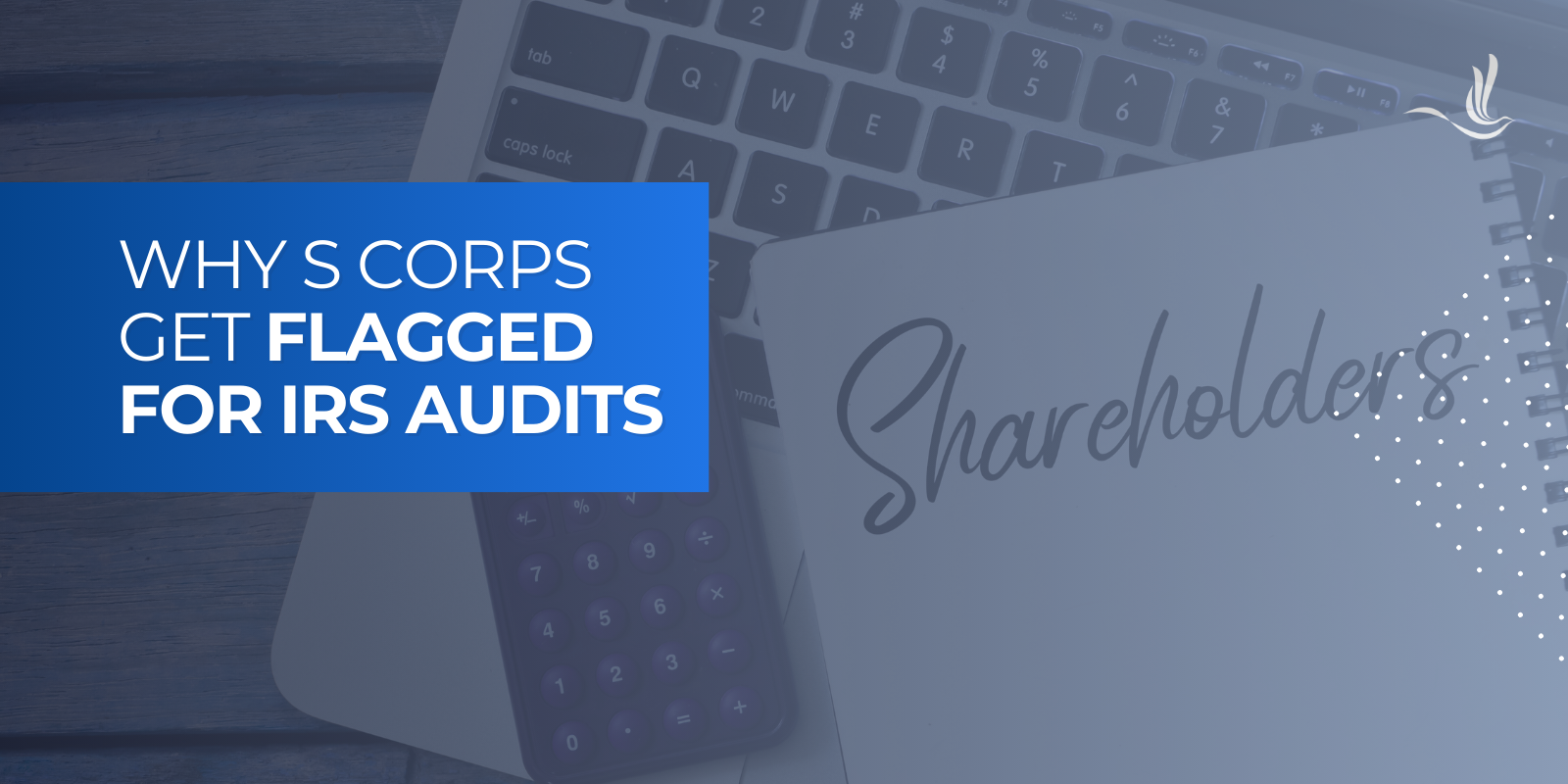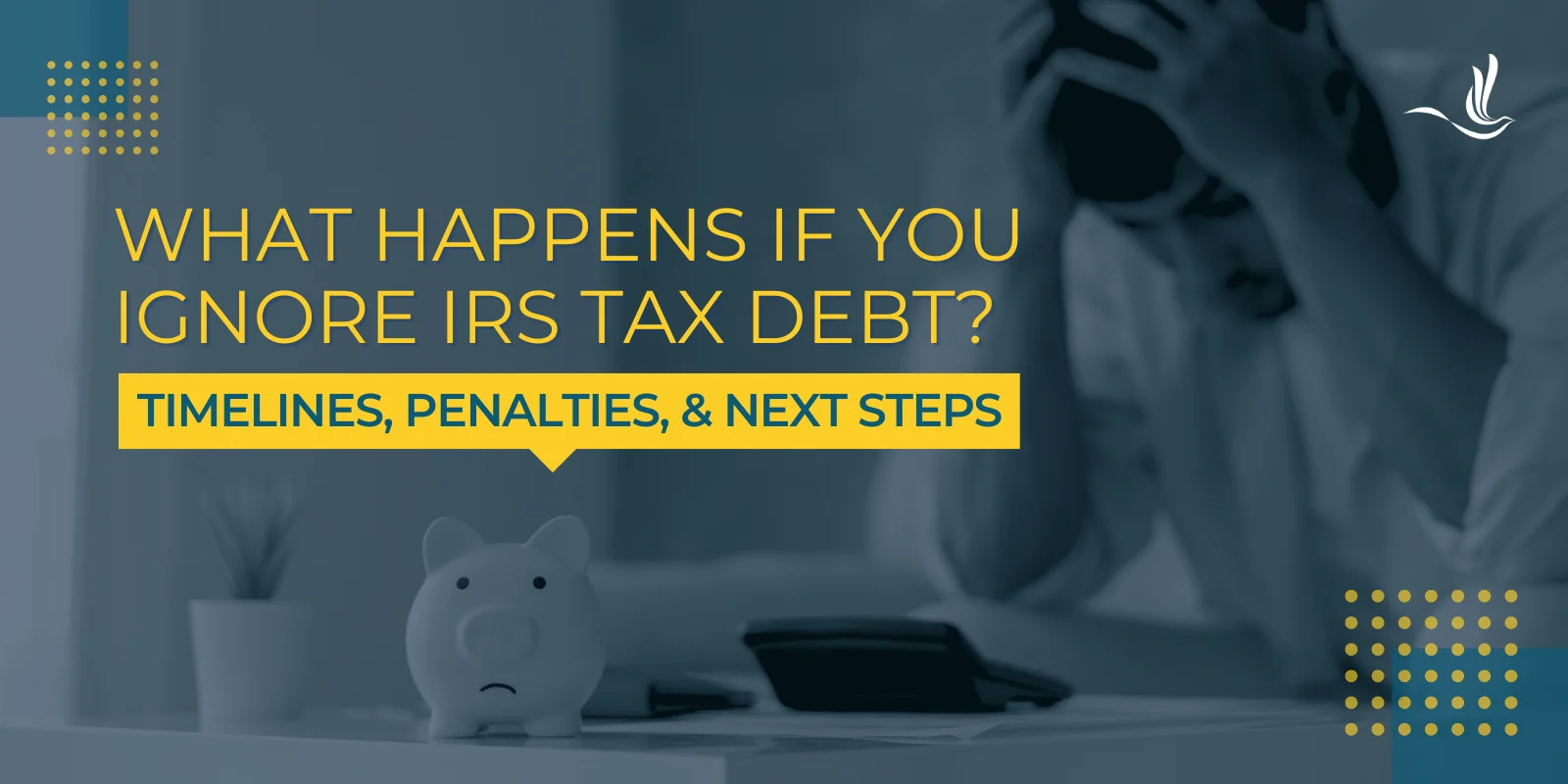Key Takeaways:
- Unreasonable shareholder compensation is one of the most common S Corp audit triggers; the IRS flags owners who underpay wages to avoid payroll taxes.
- Income discrepancies between Form 1120-S, shareholder K-1s, and third-party forms (W-2s, 1099s) often lead to IRS scrutiny for underreporting.
- Excessive or poorly documented deductions, especially for travel, meals, or personal expenses, are major red flags in S Corp tax returns.
- Improper classification of shareholder loans and distributions can cause the IRS to reclassify funds as taxable income, increasing audit risk.
- Built-in gains and passive income misreporting raise suspicion when asset sales or investment earnings aren’t properly supported or aligned with active business activity.
- Strong recordkeeping, reasonable salaries, and consistent filings across all IRS forms remain the most effective strategies to prevent an S Corp audit.
An S corporation, or S Corp, offers small business owners a flexible way to reduce tax liability while maintaining corporate protections. But with those advantages comes heightened attention from the IRS. While S Corps aren’t inherently more likely to be audited than other entities, they do present specific S Corp audit triggers, issues that commonly lead to IRS scrutiny.
These triggers often stem from how income and compensation are reported, deductions are claimed, and compliance rules are followed. Understanding what the IRS looks for and how to stay compliant can help business owners avoid unnecessary audits and penalties.
What Makes an S Corp Unique for Tax Purposes
Unlike traditional corporations (C Corps), which pay taxes on profits and then again when shareholders receive dividends, S Corps enjoy pass-through taxation. This means the business’s income, losses, deductions, and credits pass directly to shareholders, who report them on their personal tax returns. The business itself typically doesn’t pay federal income tax, helping owners avoid double taxation.
Key Qualifications for S Corp Status
To qualify as an S Corp, a business must meet specific IRS criteria:
- Be a domestic corporation.
- Have no more than 100 shareholders.
- Include only eligible shareholders, individuals, certain trusts, and estates.
- Have only one class of stock.
- Not be an ineligible type of business, such as certain financial institutions or insurance companies.
These rules are straightforward on paper but can lead to compliance pitfalls in practice. Failing to meet even one qualification could revoke S Corp status often discovered during an audit.
Why These Rules Increase Audit Potential
The complexity of pass-through taxation and shareholder requirements means there are more points of possible error. For example, if a shareholder who isn’t eligible (like a foreign resident or partnership) holds stock, the IRS may question the entity’s S Corp status. Likewise, misreporting income or distributions between the corporation and shareholders creates inconsistencies that attract attention from auditors.
Common Reasons S Corps Get Flagged for an IRS Audit
Every S Corp owner should understand the primary S Corp audit triggers that draw the IRS’s attention. Most are preventable with accurate bookkeeping, reasonable compensation practices, and consistent tax filings.
Unreasonable Shareholder Compensation
One of the most frequent and serious S Corp audit triggers involves shareholder compensation. The IRS requires that shareholder-employees receive “reasonable compensation” for their services before taking profit distributions.
Why This Matters
Because S Corps avoid self-employment taxes on profits passed to shareholders, some owners are tempted to minimize wages (subject to payroll taxes) and take most income as distributions (which are not). The IRS sees this as an abuse of the tax structure.
For instance, if a business owner earns $250,000 in profit but only pays themselves $25,000 in wages, the IRS may view this as an attempt to avoid payroll taxes.
Best Practices for Reasonable Compensation
To avoid this audit trigger:
- Benchmark salaries using industry data, geographic location, and job duties.
- Document your role, the hours worked, responsibilities, and comparable compensation in similar businesses.
- Pay yourself regularly and ensure proper payroll filings (Forms W-2 and Form 941, Employer’s Quarterly Federal Tax Return).
If you operate a small design firm and pay yourself $80,000 while hiring staff and managing clients full-time, this likely aligns with IRS expectations. However, paying yourself $10,000 and taking $90,000 in distributions would almost certainly invite scrutiny.
Misreporting or Underreporting Income
Another leading S Corp audit trigger involves income reporting discrepancies. The IRS cross-references data from W-2s, 1099s, and other third-party reports against the income declared on tax returns.
How Income Errors Happen
- Forgetting to include interest income or side contracts.
- Failing to report cash payments.
- Inconsistent reporting between the S Corp return (Form 1120-S) and shareholder returns (Schedule K-1).
For example, if your 1120-S shows $500,000 in total revenue, but shareholder K-1s only total $400,000 in distributed income, the IRS may flag your return for audit.
Avoiding Income Discrepancies
- Reconcile bank statements and accounting records regularly.
- Match shareholder K-1 allocations with the corporate return.
- Review all third-party income forms for accuracy before filing.
Even unintentional omissions can trigger an audit, especially if the IRS’s data-matching systems detect inconsistencies.
Excessive or Unsubstantiated Deductions
While deductions reduce taxable income, they also represent one of the most visible S Corp audit triggers.
What the IRS Looks For
- Exaggerated travel or meal expenses.
- Personal expenses labeled as business costs.
- Large round-number entries, suggesting estimates instead of actual receipts.
If your business reports $30,000 in annual “miscellaneous” expenses without supporting documentation, expect scrutiny. The IRS expects all business expenses to be ordinary, necessary, and well-documented.
Examples of Deduction Red Flags
- Writing off personal vehicle expenses as 100% business use.
- Deducting family vacations under “business travel.”
- Claiming a full home mortgage as an office expense.
How to Protect Yourself
- Keep detailed records, including receipts, mileage logs, and invoices.
- Use accounting software to categorize expenses properly.
- Avoid vague line items like “miscellaneous”; specify purpose and amount.
Auditors often focus on lifestyle indicators if reported income doesn’t match the owner’s spending habits, they dig deeper.
Payroll and Employment Tax Errors
Even minor payroll errors can create large problems. Late payroll tax deposits, incorrect withholdings, or failure to file employment forms are all common S Corp audit triggers.
Key Payroll Risks
- Missing or late Form 941 filings.
- Incorrect W-2 or W-3 submissions.
- Failing to issue 1099s to contractors.
For instance, if an S Corp owner uses contractors but fails to issue 1099-NECs for payments exceeding $600, the IRS’s reporting systems will detect the missing forms.
Preventing Payroll Mistakes
- Use reliable payroll software or professional payroll services.
- Ensure consistent, timely deposits for payroll taxes.
- Double-check that employee and contractor information matches IRS records.
Payroll mistakes not only raise audit risk; they can lead to costly penalties for failure to deposit or report taxes correctly.
Shareholder Loans and Distributions
S Corp owners often move money in and out of the business, but improper documentation can quickly become an S Corp audit trigger.
Loan vs. Distribution Confusion
The IRS distinguishes between loans to shareholders and distributions of profit. If a shareholder receives funds and calls it a “loan,” but there’s no written agreement, repayment schedule, or interest, the IRS may reclassify it as income.
Let’s look at an example. Suppose an S Corp owner withdraws $50,000 during the year but doesn’t record it as a wage or properly document it as a loan. The IRS could determine this was an unreported distribution, potentially subjecting it to additional taxes and penalties.
Audit-Safe Practices
- Draft formal loan agreements for shareholder loans.
- Record payments and interest accurately.
- Ensure distributions align with ownership percentages.
Consistency across books, bank statements, and tax returns is key to preventing this type of audit issue.
Built-In Gains and Passive Income Taxes
Even for established S corporations, income composition and asset sales can raise red flags if not reported correctly. The IRS closely reviews how S Corps classify and report gains and passive income because these areas often lead to calculation errors.
Recognizing Built-In Gains Within an S Corp
When an S Corp sells appreciated business assets, such as real estate, equipment, or investments, it must properly report the gain and pay any applicable taxes. Failing to document the asset’s basis, sale price, and holding period can trigger questions from the IRS about whether income was understated.
For example, if an S Corp sells an asset for a significant profit but the corresponding gain doesn’t appear clearly on Form 1120-S or shareholder K-1s, it could prompt an audit notice.
Managing Passive Income Risks
S corporations must ensure that passive income, like interest, dividends, or rental income, does not dominate their earnings without proper reporting or documentation. While S Corps can legally earn passive income, large or disproportionate amounts compared to active business operations can draw IRS attention.
An S Corp that regularly reports high investment income but little payroll or operational expense may appear to function more like a holding company than an active trade or business, an arrangement that often leads to increased scrutiny.
Complex cases involving big or passive income taxes often lead to audits because they require specialized knowledge and accurate documentation.
Myths About S Corps and Audit Risk
Despite common fears, S Corps aren’t automatically more likely to be audited. Understanding what’s true and what’s not can help you focus on real compliance priorities.
Myth 1: “S Corps Are Automatically Audited More Often”
The IRS focuses less on entity type and more on risk signals within returns, such as underreporting or unreasonable deductions. Most audits stem from inconsistencies or missing documentation, not the business structure itself.
Myth 2: “The IRS Targets S Corps for Tax Avoidance”
Forming an S Corp is a legitimate and IRS-recognized strategy for small business tax management. Problems arise only when owners misuse the structure, such as paying themselves unreasonably low salaries or commingling personal and business funds.
Properly managed S Corps demonstrates compliance and professionalism, signaling to the IRS that the business takes its obligations seriously.
Myth 3: “Automation Eliminates All Audit Risk”
Technology can reduce errors, but it can’t eliminate them. Automated payroll and accounting systems still rely on correct data entry and human oversight. For example, if you misclassify an expense in QuickBooks, automation won’t prevent that from appearing suspicious to the IRS.
Regular manual reviews ensure the technology supports compliance rather than masking errors.
Avoiding S Corp audit triggers isn’t about luck. It’s about maintaining consistency, accuracy, and transparency.
Pay Yourself a Reasonable, Documented Salary
The simplest defense against audits is also the most overlooked: pay yourself fairly. Keep written support for how you determined your salary, such as:
- Salary comparison reports (e.g., Bureau of Labor Statistics data).
- Job descriptions and time logs.
- Documentation showing how profits were distributed.
Regular, documented payroll runs show the IRS that compensation was handled correctly.
Maintain Accurate and Detailed Records
Every deduction, payment, and loan should have a paper trail. Well-organized documentation not only supports deductions but also speeds up audit resolution if one occurs.
Keep records for:
- Bank statements and canceled checks.
- Receipts for business expenses.
- Shareholder meeting minutes and resolutions.
Consistency between bookkeeping records and tax filings is the hallmark of audit-proof accounting.
File and Cross-Check All Tax Forms
A major S Corp audit trigger is mismatched data across IRS filings. Double-check:
- Shareholder K-1 forms match the totals on Form 1120-S.
- W-2s and 1099s are correctly issued and filed on time.
- Personal tax returns reconcile with S Corp distributions.
Even small discrepancies can raise red flags because the IRS’s data-matching system automatically detects them.
Avoid Overstated Deductions and Keep Proof
Aggressive deduction strategies may reduce taxes in the short term but often invite scrutiny later.
Keep receipts, invoices, and proof of payment for every expense claimed. For example, when deducting meals, include the date, location, amount, and business purpose. For travel, keep itineraries and meeting notes.
The goal isn’t to avoid legitimate deductions, it’s to substantiate them clearly.
Conduct Annual Tax Reviews or Professional Audits
Regularly reviewing your financial statements with a CPA or tax professional can catch issues before they catch you. A qualified expert can:
- Identify deduction errors.
- Verify compensation reasonableness.
- Ensure compliance with built-in gain or passive income rules.
An annual review functions as a preventive audit, helping your business stay clean long before the IRS comes calling.
What Happens If You’re Audited
Even the most compliant S Corps can face an audit. Knowing what to expect can make the process far less stressful.
- Initial Notice. You’ll receive a letter (never a phone call) outlining what the IRS wants to review.
- Document Request. The IRS may ask for tax returns, receipts, payroll records, and other documents.
- Review and Response. Most audits occur by mail, but some require in-person or office meetings.
- Resolution. If discrepancies are found, you may owe taxes, interest, or penalties. You have the right to appeal findings.
The best defense is organized documentation. The more clearly your records support reported income and deductions, the smoother the audit will go.
S Corps aren’t inherently riskier than other business entities, but they are more complex. Most S Corp audit triggers stem from simple issues like underpaid wages, sloppy recordkeeping, or inconsistent tax filings.
By paying reasonable compensation, documenting everything, and maintaining clear separation between business and personal finances, you can significantly reduce the likelihood of an audit.
Frequently Asked Questions: S Corporations and Audits
How far back can the IRS audit an S Corp?
Generally, the IRS can audit an S Corp for up to three years after a return is filed, but this period can extend to six years if substantial income is underreported or indefinitely if fraud is suspected. Keeping accurate records for at least seven years helps protect against potential disputes.
What gets you flagged for an IRS audit?
You’re more likely to be flagged for an IRS audit if your return contains large round numbers, missing income forms, unusually high deductions, or mismatched shareholder and corporate filings. The IRS’s data-matching system automatically detects these discrepancies.
How can you avoid an IRS audit?
Avoid an IRS audit by maintaining detailed documentation, paying reasonable shareholder wages, reconciling all income forms, and filing returns accurately and on time. Consistent, transparent records are the strongest defense against audit risk.
What taxes do S Corps avoid?
S Corps avoid double taxation by passing income, losses, and credits directly to shareholders’ personal tax returns instead of paying corporate income tax at both the business and individual level. However, they must still pay payroll and employment taxes on reasonable compensation.
Tax Help for S Corporations
Ultimately, the IRS focuses on accuracy and transparency, not punishment. When an S Corp demonstrates professionalism through consistent reporting and compliance, it signals to the IRS that the business understands and follows the rules. The best way to avoid an audit is simple: run your S Corp like the legitimate, well-organized company it was meant to be; one that leaves no question about its integrity or intentions. Optima Tax Relief is the nation’s leading tax resolution firm with over a decade of experience helping taxpayers.
If You Need Tax Help, Contact Us Today for a Free Consultation
Publisher: Source link











